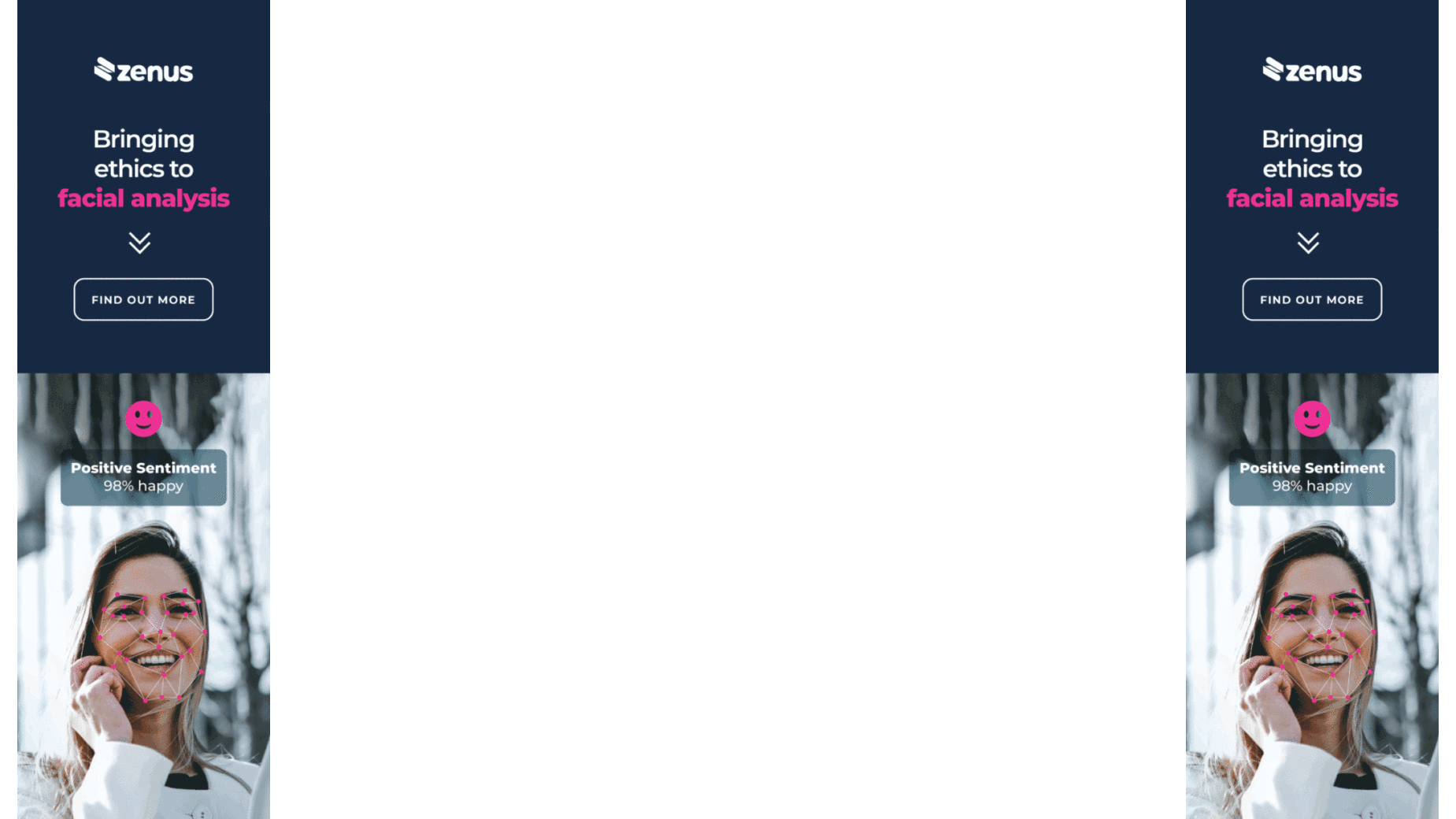By Alan Gelfand, Founder and CEO of Fair Ticket Solutions.
Have you ever wondered why the airlines don’t allow you to print your boarding pass when you purchase your ticket? Wouldn’t it be convenient to print it out alongside your receipt, or be able to send it to your phone to be stored in your wallet instead of having to wait until 24 hours before your flight? Why do the airlines do this? You can’t sell it. You can’t give it away. If you print it out and lose it, nobody else can use it and you can always print another. It has nothing to do with security as that’s done at the airport. So why can’t we?
The reason the airlines direct you to wait until 24 hours before your flight, has to do with utilising the undivided attention of their customers.
CHECKING-IN WITH AIRLINES
Everyone accepts they have to check-in in order to board their flights. Checking-in requires we drop everything we’re doing to focus on one important task. At that time, the airline has your undivided attention, which it uses to engage directly with you. Aside from extra reassurance you are attending, the communication creates two value propositions:
1) It generates additional revenue with seat upgrades, priority boarding and pre-paid food options, etc.
2) It creates a better overall customer experience by informing passengers of valuable information such as terminal, gate, destination weather, along with offering conveniences such as pre-paying for bags and directing you to rental car companies. This deliberate timely connection facilitates an incredibly valuable asset I call the Engagement Opportunity. This is the result of decades of experience from the $725B global airline industry, which in every measure dwarfs that of live events.
SO HOW DO THEY DO THIS?
Its interesting how the airlines control their tickets and know each passenger, despite the fact that 7 out of 10 are using paper tickets? They do it through a 2-step process. First: The airlines activate the boarding pass and make all passengers check-in 24 hours prior to their flight. Second: The passenger has to provide proof of identity, wherein their ID matches the name on the boarding pass before they are allowed to get on the plane. This happens regardless of whether the ticket format is paper or mobile and for decades, this 2-step process has worked at every airport in the world. The airlines have trained the world at their expense, to check-in before our tickets are activated. With all that experience and understanding, why can’t live events leverage their customers (who are the same as the airlines) conditioning to produce the same values? The answer is, now they can, and it’s called authenTICKET.
LIVE EVENTS SOLUTION
Fair Ticket Solutions (FTS) proprietary “authenTICKET” platform, seamlessly combines this 2-step airline authentication process into a single proximity based check-in, that attaches the identity of the primary ticket purchaser to their actual tickets. This ID is collected at the time of purchase and registered to their account. When one purchases and receives a ticket to an “authenticated event”, no matter what the ticketing format is, the holder is informed their ticket is “not activated”, and needs to be in order to be recognised at the gate. This can be facilitated when they arrive at the event and check-in via a number of explained options. If they fail to follow the well-known procedures, they will not be allowed to enter the event, similar to forgetting your ID when you get to the airport. The difference is; if, you wish to transfer or sell your tickets, it is allowed. However, you can only do so on an authorised platform, or else the new holder will not be able to “activate” their ticket. These things enable the engagement opportunity, driving more revenue to the organisers and a better more secure, fan experience.
So why haven’t live events embraced a powerful opportunity to engage their customers the way airlines have? They’ve followed them with almost all of their other initiatives; Dynamic pricing, variable pricing, mobile tickets, seat upgrades, VIP experiences (first class lounges), express entry (CLEAR), security. Could it be, rather than focusing on delivering a “customer-first” experience which they all claim they are providing, they are singularly focused on capturing data at any cost? To do that successfully, they have decided to eliminate more customer choices and flexibility by attempting to force everyone to adopt a mobile/digital ticket to collect the data providers decided they want.
MORE DATA
There is no question that more data is better than less, and if you can increase your knowledge of who your actual customer is, everyone in the value chain benefits. As an example, Ticketmaster did a masterful job with its Verified Fan program. It has the potential to collect the names of many more fans, than those who actually end up purchasing a ticket. Kudos. However, at what cost? In doing so, Verified Fan unnecessarily places large numbers of ‘true fans’ through extra procedures for a mere chance of being able to purchase a ticket, with the reality being, more often than not, all their efforts will result in no tickets materialising! How does inconvenience and disappointment enhance the fan experience? From the outcries that are deluging social media, it doesn’t.
The big question is; once we’ve collected all this fan data, wherein a large subset of the respondents have been inconvenienced and disappointed, what do we do with it? And looking past the fact more collateral damage has been produced than good, the answer is understandably elusive.
Currently, the industry falsely believes that in order for it to get what “it” needs, the consumer’s convenience of having an option to use bar-coded paper tickets must be removed. If a person has a mobile ticket, then the identity of that attendee is known. The reality is many people are not yet comfortable with the technology around mobile tickets. We all have experience with our phones dying, and we’ve all read stories of ticketing systems going down. In many instances, true fans still prefer a traditional souvenir ticket as a keepsake. Especially if it is to marquee events wherein they want tangible evidence or their attendance. In fact, a souvenir ticket of an artists last tour, or a teams championship win, not to mention a Master’s Golf ticket hanging around ones neck in a lam, is part of the fan experience.
The industry argues that Millennial’s are 100% mobile and as such unlike the preceding generations, don’t care about the physical manifestation of attendance. Really? Regardless of age, everyone wants something to frame.
THE FAN EXPERIENCE
Why does the industry want to take away ANY fan experiences? Especially as some events have as much as 40% of their seating inventory going unsold. Has the industry not looked over its shoulder at the advance of Virtual Reality (VR) tied to social networks wherein soon, everyone will have access to technology where the inconvenience of attending an event is weighed against all the conveniences of staying home? With that looming on the horizon, why stack the deck against live events by removing consumer conveniences? If only 5% want the flexibility and security of holding paper tickets, why force them to give that up, or worse yet, charge them extra to keep it? How does that enhance those fans’ experience?
Today, everyone agrees 100% mobile at an event of any size, can’t exist without some form of digital backup. That means, RFID cards and smart tickets with chips. However, when it comes to attendees using these formats, no one knows who that person actually is, as these tickets are easily transferred. How do these restrictions enhance the collection of attendance data, never mind enabling a timely engagement with them? Lets not forget festival wristbands, who also have the same limitations.
Yet another misplaced assumption is, because you now know someone placed a ticket in their mobile wallet, you can send them push alerts they genuinely want. How many alerts do we receive a day, that we delete without reading because we’re preoccupied and our time is so valuable? Every time we download another app, does it not create more completion fighting for out attention? Would it not be safe to say that our level of frustration is increasing as push alerts unceasingly fill up our inboxes? In fact, wouldn’t everyone agree we all spend more of our days deleting alerts, than waiting for and embracing them?
Attending any live event today usually requires a delay due to security. Are those inconveniences projected to get worse over time or better and how will those changes occur? Again, I think its safe to say, the last thing anyone wants after waiting in line, is a push alert once they have passed through the gates while trying to find their seats, a washroom, their favourite concession or their friends?
The latest research report states, that by the end of 2019, airlines will surpass 30% adoption of mobile boarding passes for the first time since they were introduced over a decade ago? That means 7 out of 10 airline boarding passes or seven million airline passengers a day choose scannable paper bar-coded tickets over mobile because their given the choice. Why is a mobile ticket NOT A PRIORITY for the airlines? The reason is very clever, and it exhibits a far deeper understanding of how we interact with services, than is present in the way the events industry heavy-handedly goes about its data collection, revenue generation and customer service.
WHY DON’T AIRLINES OFFER INCENTIVES TO PASSENGERS TO SWITCH FROM PAPER TO MOBILE?
When you check-in 24 hours prior to your flight, the airlines offer you the choice of a paper ticket and the choice of a mobile ticket. If you choose paper, they offer you the choice of
1) printing it right away
2) printing it later on
3) printing it at an airport kiosk or
4) letting the airline print it for you when you check you bags.
If you decide upon a mobile boarding pass, they offer you another choice:
5) a paper back-up ticket.
Five paper choices to one mobile. They know the identity of every passenger. They have no fraud. Their rules of transferability are not associated with security, which is done at the airport by the TSA. The airlines believe in choice and convenience, and have done the studies that show there is no added value in incentivising passengers to use a mobile ticket. In fact, quite the opposite is true. Scanning a mobile ticket today is nowhere near as efficient as scanning a paper ticket, and as technology advances wherein scanning becomes more efficient, a faster scan has no added value either, because it will only back up passengers on the jetway as there is no way to get people into their seats faster while stowing their luggage overhead. Would a faster scan into a live event not produce a similar result?
Concourse’s are already jammed prior to the start of an event. What good is getting attendees in faster when they all show up within a specific window anyway, and they can only disperse to their seats so quickly given the crowds, and concessions are already lined up? So at the end of the day, is it really speed of entry that produces more value that can come from RFID, NFC, LSNR and possibly facial recognition or, is it efficiency of entry that is the key? As an example, if it were possible to engage attendees prior to having their tickets scanned, you could possibly manage them coming in more efficiently earlier when concessions are not lined up. Imagine checking in while attending a tailgate party, and being notified of a special offer to come in earlier before the lines start to build? Are you going to get the same effect with a push alert standing in line or after entering the venue?
Likely not. Cramming people faster into an area can only make for a less satisfying fan experience, not a better one which leads to a final misconception; eliminating the bar code is a “have to have”. Nothing could be further from the truth.
CASE STUDY
In 2009, the airlines attempted to streamline the entry process by introducing an RFID tag. Air New sealand invested approximately $16.5M USD installing 112 kiosks and 84 scanners at 26 airports around the country. They called it “ePass” and they felt a “tap and go” would revolutionise the industry. Five years later it was abandoned. Why? They realised that phones with QR bar codes were more then efficient as a boarding pass, and as their usage continued to organically increase, there was no reason to implement something different as they already offered an accepted choice to complement paper boarding passes. That led to the conclusion that there was no reason or value to eliminate paper tickets until generations die off. Fast forward to today and nothing has changed. So why aren’t live events following the very industry they have attempted to emulate in almost every other aspect, and when it comes to the bar code, why is this industry trying to reinvent the wheel, when its spinning perfectly well in every country in the world in the live events industry’s model industry?
Fact is, the secret sauce is not found in the mobile ticket, or eliminating the bar code. The magic is found in other ways to definitely identify the actual attendee, supplying a measurable value to the consumer such that they want to download your app or log into your website and most importantly, organically generate a timely and nonintrusive connection to the actual user of the ticket. These three elements, combined, produce an informed and powerful “engagement opportunity”, wherein the customer feels valued, and a new channel of revenue is untapped, Southwest Airlines do not sell seats or food on their flights so they don’t have those same opportunities as other airlines. Instead, they’ve created their own engagement opportunity. Before you’re allowed to check out when purchasing your ticket, they offer you a pre-assigned boarding spot for $15 that allows you to get your seat first, as a convenience over getting it when you check in which, could leave you in a less desirable seat.
If 15 people (less then 10%) say yes, that represents $280M additional annual revenue without having to invest a dime more to access that revenue. At Southwest, this different engagement opportunity has nothing to do with a phone, eliminating bar codes or sending annoying push alerts. Obviously they must be doing something right as they have the number one rated frequent flyer program in North America and are number two in customer satisfaction. Shouldn’t live events be learning something from this?
While in the UK recently, I needed to take a train. When purchasing my ticket, the company offered me the choice of
1) downloading their app if I was going to be frequently using their services where they would send me my ticket and I could activate it by checking in at the station,
2) sending me an e-ticket if I didn’t want to download the app where I could either have my ticket scanned off my phone, or print out a paper copy at home or
3) collect a paper ticket from a kiosk at the station by using the credit card I used to purchase it.
CHOICE! Four million passengers a day take a rail train in the UK and are all given these choices. So why is the live events industry determined to remove consumer choices that other seat-based ticketed infrastructures are embracing when moving 4 million people every day into their seats? What about that makes sense, when those well rested choices are consumer priorities determined to be effective in servicing the very same customers that are attending live events? What of the $117B cruise line industry that has over 27 million passengers annually? That’s right, they also offer choice of paper boarding passes. How about passenger bus lines? Same! Get the picture?
CONCLUSION
In every service industry, customer-experience is directly linked to customer satisfaction. What our industry fails to acknowledge is, by not acting as a ‘customer-first’ industry we’ve damaged our sustainability. The future is already here everyday. By understanding that consumers’ choices are increasing everyday both in the home and away, and most certainly not diminishing, companies that desire long-term sustainability should prepare to deliver more, not fewer choices.
In a world where sports franchises are clamouring to collect every dollar, and artists are required to tour as revenue streams from publication diminish and the costs associated with every event are rising, along with legislation eliminating long cherished entertainment tax write-offs, would you say that failing to apply the airlines engagement opportunity is a failing of the live events industry that’s too costly to ignore? The writing can be read on every wall, in every airport in the world. Our industry needs merely to lift its head to see what’s in front of them to take advantage of it. I fear if they don’t, the industry is going to miss this valuable asset as it continues to chase technology without first identifying where the real value lies.
Where is the engagement opportunity, If one day you don’t even have to take your phone out of your pocket when you walk through the gate? It likely doesn’t exist, and that’s my point! Who wins here?
 About the Author:
About the Author:
Alan Gelfand is the founder and CEO of Fair Ticket Solutions Inc. who pioneered authenticated and verified tickets to live events by creating the worlds first mandatory check-in for live events, that works with every type of ticket format at any live event.










